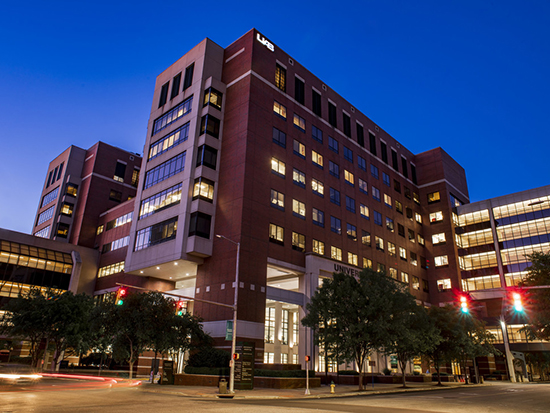 Treating blood disorders and cancers cannot be done alone. It requires the strong will of a patient, the support of family, and the compassion and expertise of a world-renowned health care team, like those with the O’Neal Comprehensive Cancer Center at UAB’s Bone Marrow Transplantation and Cell Therapy program.This September, the Bone Marrow Transplantation and Cell Therapy program at the O’Neal Comprehensive Cancer Center at the University of Alabama at Birmingham is celebrating 30 years of patient care and more than 3,200 transplants performed since 1991.
Treating blood disorders and cancers cannot be done alone. It requires the strong will of a patient, the support of family, and the compassion and expertise of a world-renowned health care team, like those with the O’Neal Comprehensive Cancer Center at UAB’s Bone Marrow Transplantation and Cell Therapy program.This September, the Bone Marrow Transplantation and Cell Therapy program at the O’Neal Comprehensive Cancer Center at the University of Alabama at Birmingham is celebrating 30 years of patient care and more than 3,200 transplants performed since 1991.
“We have dedicated each day to lead with innovation and serve with compassion, along with the most advanced treatment methods in a comfortable, cutting-edge facility,” said BMT and CT Medical Director Donna Salzman, M.D. “We provide our patients and families with expert medical care and honest, compassionate recommendations to ensure they have the best possible outcome.”
The BMT program provides an entire range of blood and bone marrow transplant options, including autologous and allogeneic transplants, using bone marrow, peripheral blood stem cells — or cord blood — for patients in Alabama and surrounding states. Doctors also perform related and unrelated donor stem cell transplantation, including haploidentical transplants. The program works closely with other stem cell transplant programs throughout the country, collaborating on the treatment of patients and organizing/participating in multi-center clinical trials, in addition to participating in clinical trials through the BMT Clinical Trial Network.
“One of the special things about transplant is how close we are as a group,” Salzman said. “I have been here 26 years, and there are people who have been with the program longer than that. We are a family, and as such we work together. By working together, we can accomplish so much.”
Each patient is treated by a team of health care professionals dedicated to his or her care throughout the transplant process.
“The advancements in technology including Chimeric antigen receptor (CAR) T cell therapy, new pharmacologic therapies and supportive care are phenomenal,” Salzman said. “There are diseases now that have so many specialized therapies that we don’t need to consider transplant. On the flip side, when needed, we are now able to offer transplants to some patients into their 70s. Previously, we just didn’t have any options.”
With all the advancements and new opportunities for treatment, Salzman says, it is the donors and patients and the milestones they reach that have the most impact on her and the entire program.
Click here to learn more about blood and marrow transplant at UAB Hospital.
“Each new birth, wedding and so many other events are to be celebrated, not only for the parents of newborns or the graduating senior, but for the remarkable opportunity that the patient is there to participate because of transplant,” Salzman said. “I have been fortunate to have witnessed many of these events, and they are so special. I have been honored to be included in so many milestones with my patients.”
One of those patients is Deborah Reynolds. Reynolds received an allogenic stem cell transplant in 1993 at UAB after receiving a leukemia diagnosis. She was told she would have only two or three years left to live without a bone marrow transplant. Her brother was one of three potential matches.
“By the grace of God, my brother was able to donate to me,” Reynolds said.
Reynolds now lives in Florida and continues to be thankful for her care team at UAB.
Salzman adds that donors take time out of their busy lives to undergo medical procedures for the collection of stem cells.
“These individuals — some are family, and some are anonymous strangers — have truly offered the gift of life to our patients,” Salzman said. “This is so much more than donating blood. This is human altruism at its finest.”